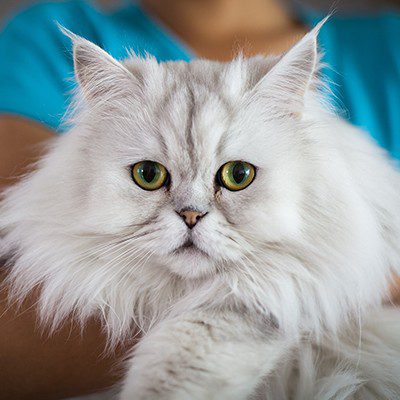Fall is officially upon us! Many people are seeing to seasonal chores and tasks now, and getting ready for winter. Your cat will probably sleep through most of your autumn activities. However, you will need to keep Fluffy’s safety in mind as the seasons change. Here, a Roanoke, VA veterinarian offers some helpful tips on caring for your kitty in fall.
Bedding
Did you know that Fluffy will sleep even more than usual when it’s gloomy out? (We can’t really blame her: rainy days are great napping weather.) Make sure your drowsy little furball has lots of warm beds to curl up in.
Grooming
Fluffy may shed more than usual in autumn, as she changes into her winter clothes. Get into the habit of brushing your pet daily. This will remove dust, dead fur, and dander from her coat. You’ll also find less hair on your furniture, and hopefully, fewer hairballs.
Safety
The Great Outdoors is always dangerous for cats, but it’s particularly treacherous in fall and winter. Plummeting temperatures; snow; wild animals; toxic chemicals, such as pesticides and antifreeze; and shorter days all pose additional hazards to kitties. Halloween is particularly dangerous. Unfortunately, our feline friends are also at higher risk of being hurt or stolen around the autumn holiday. Keep Fluffy safe and purring indoors.
Parasite Control
Fleas and ticks are not as prevalent in winter as they are in summer, but they don’t go away completely. In fact, many of them will try to hunker down indoors. Mice and vermin might also try to get inside. These uninvited guests can carry dangerous diseases and parasites. Keep up with Fluffy’s vaccines and parasite control products.
Decorations
Keep your frisky feline in mind as you hang seasonal decorations. Anything with dangling ropes or cords can be dangerous to a kitty. Small or sharp items are also unsafe. (This of course means that Fluffy will insist on playing with them.) Keep these items, and things like candles and potpourri burners, out of paws’ reach.
Purrs
Dreary autumn days are perfect for relaxing at home with a good book or movie, a hot tea or coffee, and a purring kitty. Enjoy some down time with your feline buddy. Cats make great snuggle buddies!
Please reach out to us, your local Roanoke, VA vet clinic, for all of your pet’s veterinary care needs. We’re here to help!








